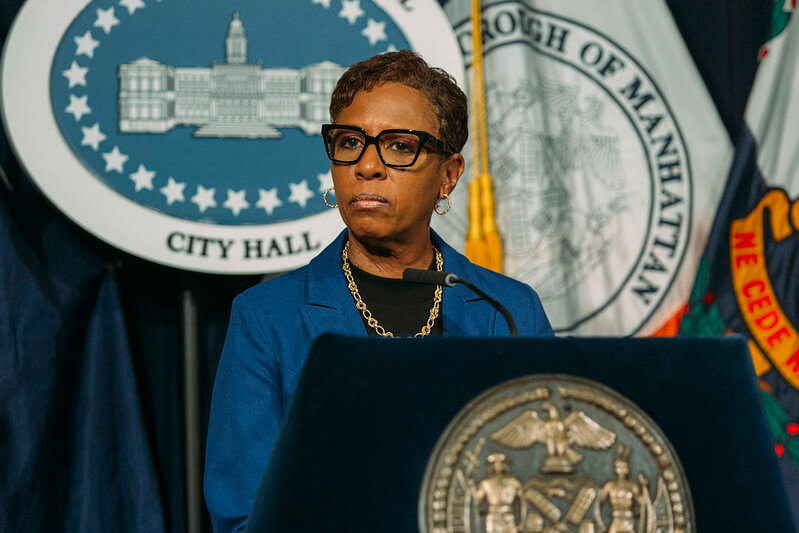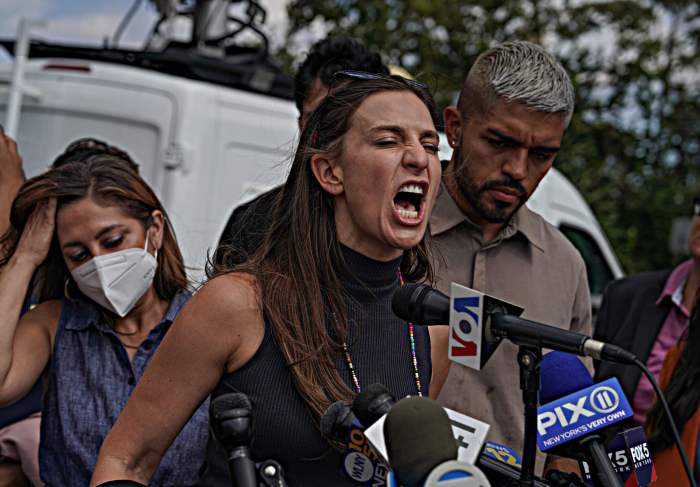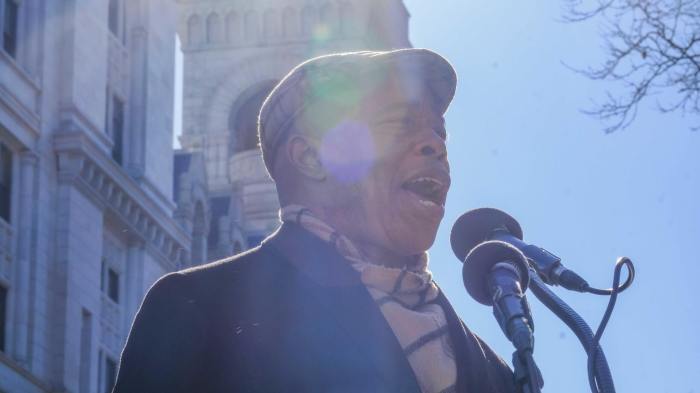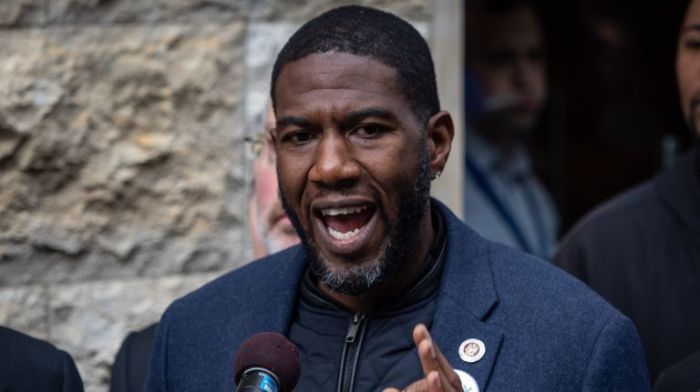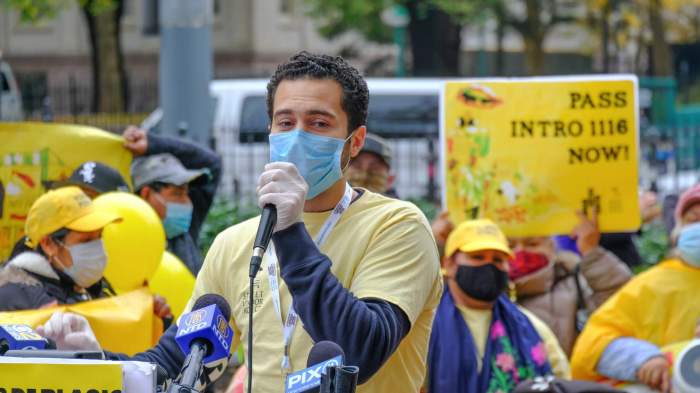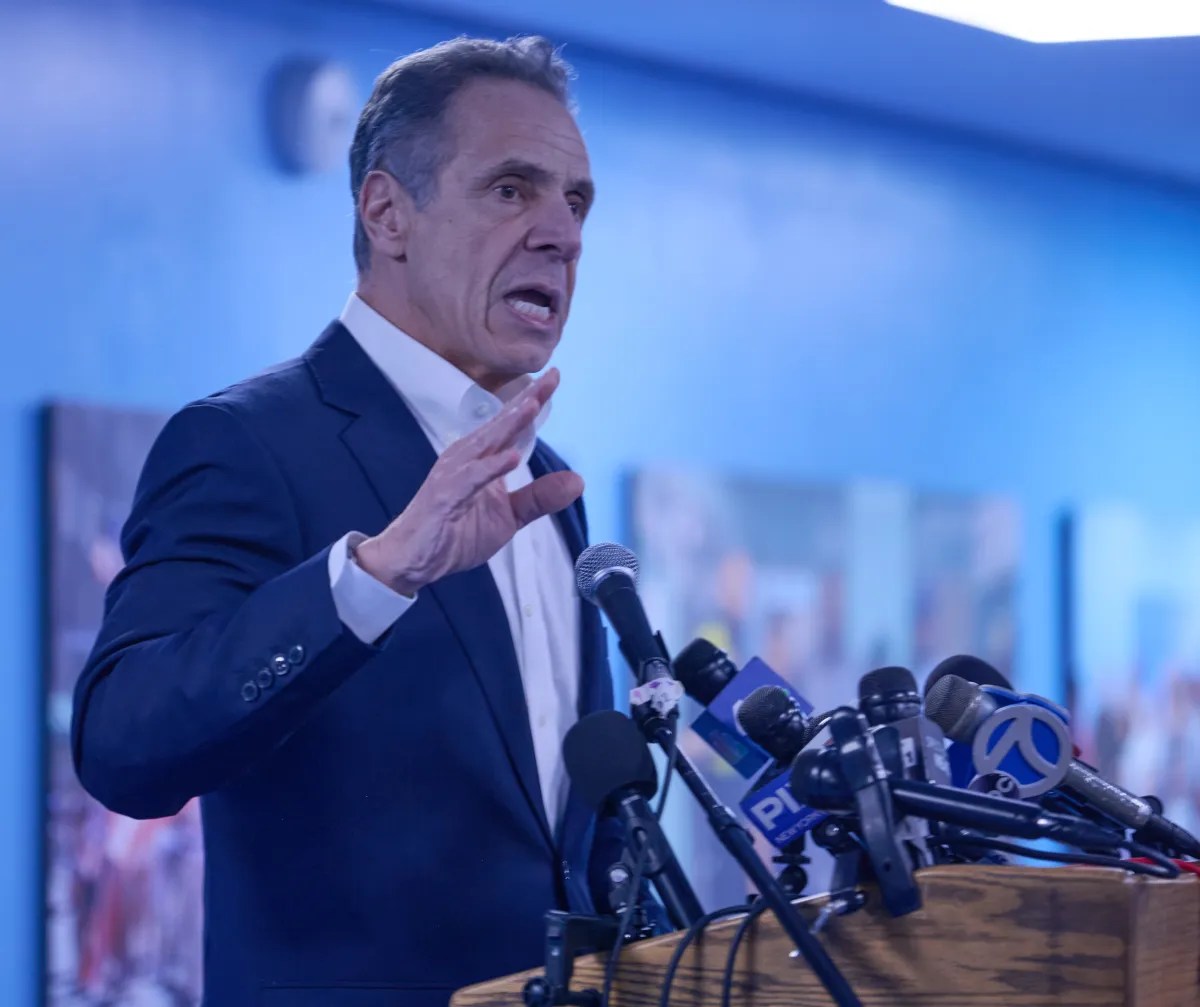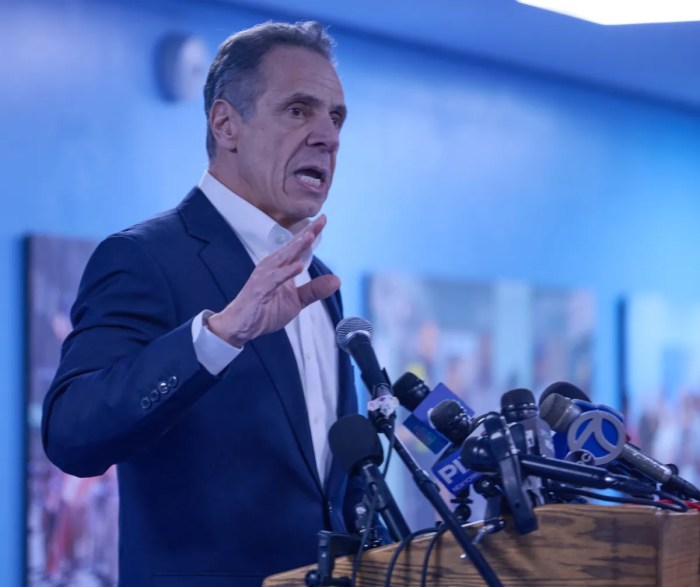City Council Speaker Adrienne Adams on Wednesday blasted Mayor Eric Adams’ (no relation) directive late last month for first responders and health care workers to start involuntarily hospitalizing people who appear severely mentally ill on city streets and in the subways, charging it’s “an idea” without a truly “comprehensive plan.”
“We are still waiting for a full comprehensive plan when it comes to the rollout, as [far as] a couple of weeks ago when the rollout was presented,” Speaker Adams said during an unrelated press conference Wednesday afternoon.
“What we see right now in the council is an idea,” the Queens-based legislator added. “What we’d like to see as a plan. We have not seen that yet.”
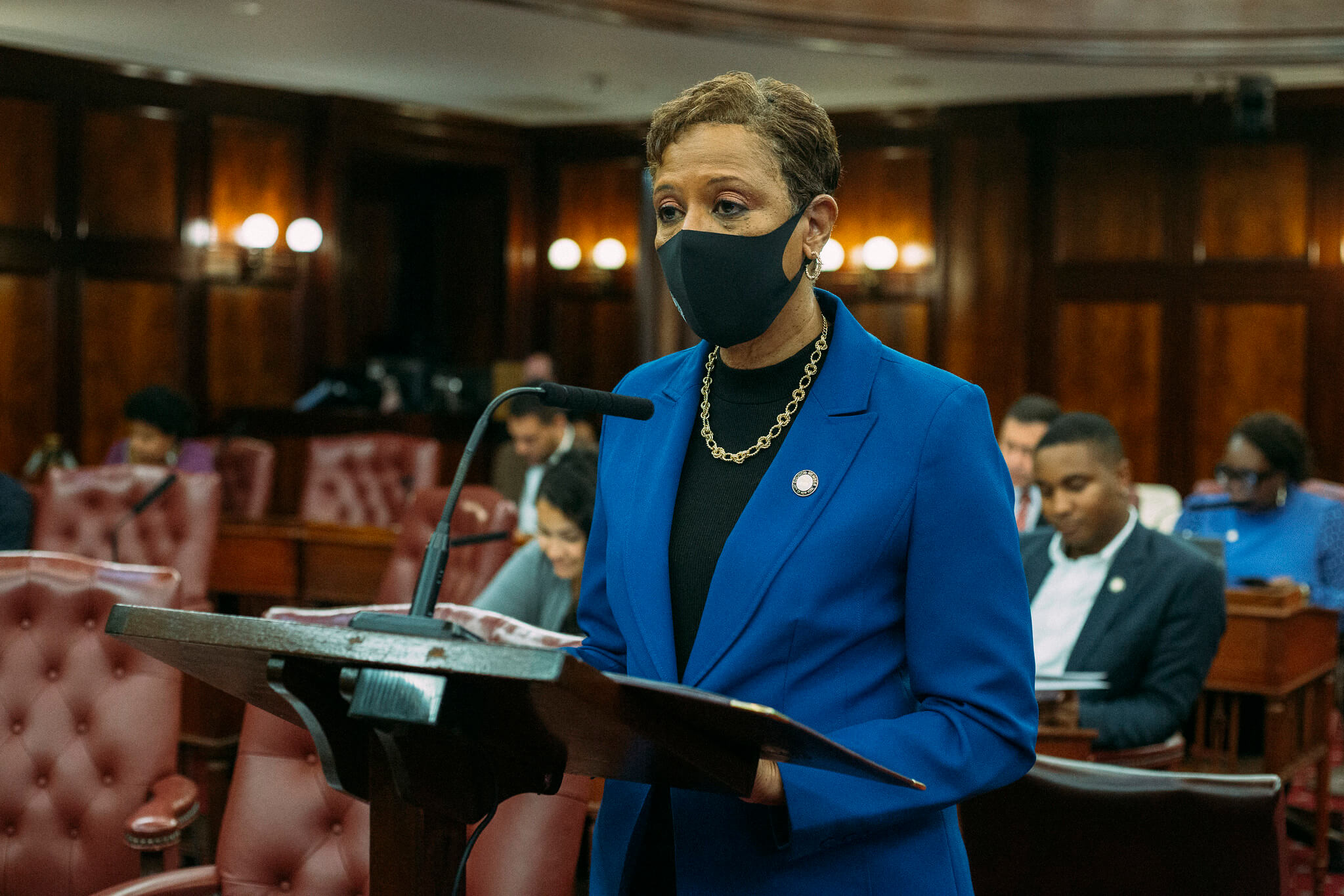
Additionally, the speaker said she would share more information on possible council hearings over the directive in the “coming weeks,” in response to a reporter’s question about what next steps the City Council will be taking. Speaker Adams also listed off several outstanding questions she has about the directive.
“What are we going to do, once the city decides and determines that someone should be hospitalized or evaluated?” she asked. “What is the timeframe then? After that evaluation, how are the health considerations determined? And then what happens once that evaluation is made? Is an individual kept indoors or kept in a hospital 48 hours, 72 hours, two weeks? When they’re released, what happens with those services that that person truly truly deserves?”
In a statement to amNewYork Metro, a mayoral spokesperson didn’t respond to the speaker’s specific charge that the mayor had yet to issue a comprehensive plan to tacklet the city’s mental health crisis. Instead, they emphasized that the admistration is taking action on the issue rather than simply ignoring it.
“To do anything less than to connect these individuals with the proper care and support is cruel and heartless, and only displays the lack of willingness to actually address the needs of suffering New Yorkers,” they said. “We must break the cycle that has shuffled people experiencing homelessness back and forth between the streets and an emergency room, and we must stop choosing to ignore people crying out for help until they fall into serious or imminent danger. We refuse to allow the status quo to continue.”
Whilst unveiling the new policy last Tuesday, Mayor Adams said the directive instructs first responders with the NYPD, FDNY and EMS, as well as health care workers, to involuntarily hospitalize anyone who appears to be a danger to themselves due to their inability “to meet their basic needs” and refused help voluntarily. Those individuals would be brought to a hospital for a psychiatric evaluation.
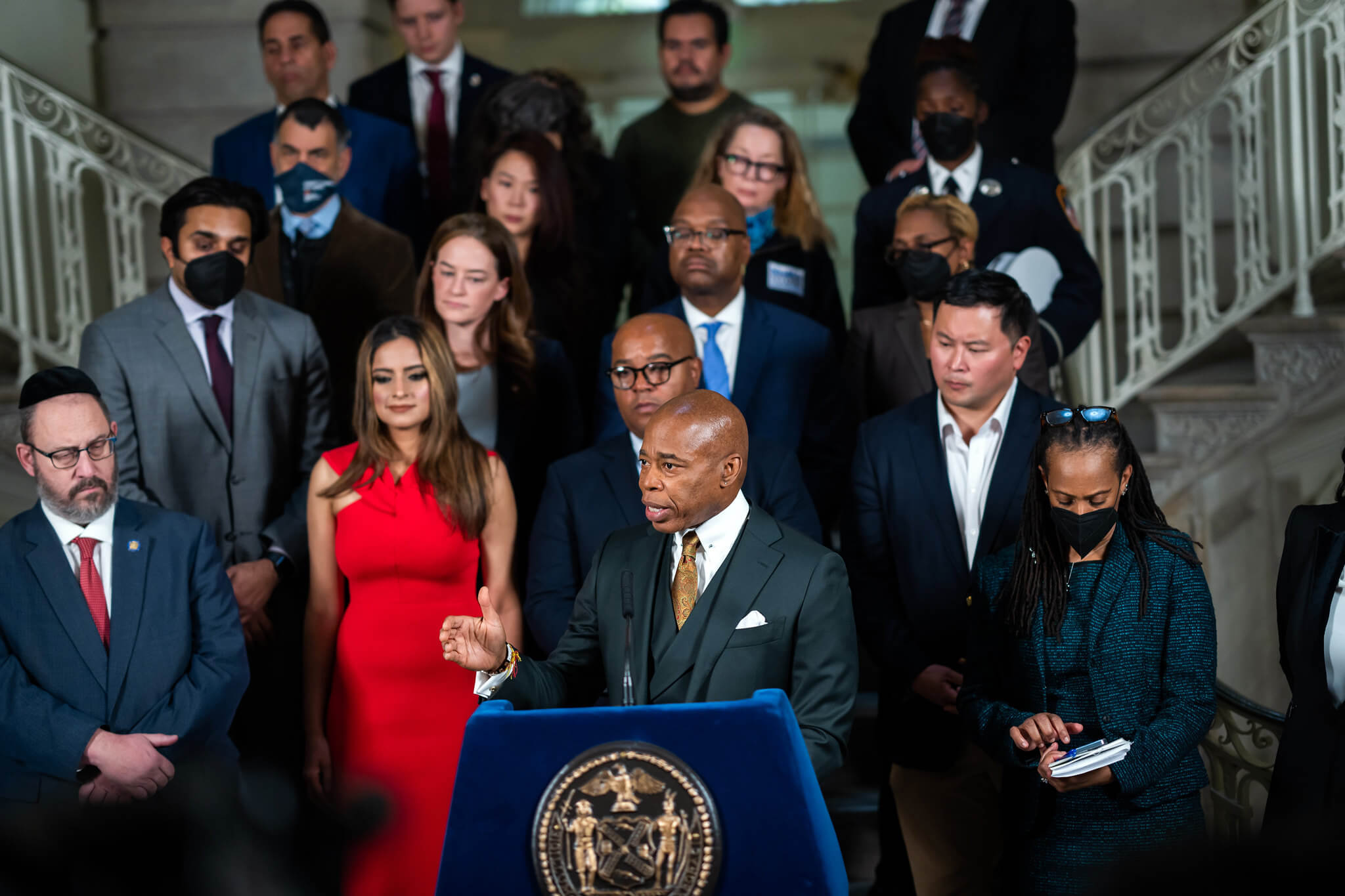
Mayor Adams said first responders began receiving training on how to conduct these forced hospitalizations the day of the announcement last week. Additionally, he rolled out a hotline, staffed by mental health professionals, that police officers can call – or video chat – for help if they come across someone who appears to be severely mentally ill.
While some have applauded the mayor for attempting to tackle the city’s mental health crisis head on, many advocacy groups and elected officials – like Speaker Adams – have raised several questions about how the directive would be implemented.
Critics have pointed to concerns about how first responders will determine who should be hospitalized against their will, whether the police should be on the front lines of the response and if the city has enough psychiatric beds to accommodate the number of people who’ll be brought in for evaluations.
Public Advocate Jumaane Williams, in particular, has fiercely criticized the mayor’s directive. According to a published report, Williams sent a letter to hizzoner last Friday asking how “police officers and EMS be trained on how to recognize people who would fall under involuntary removal given that it is deemed subjective?”
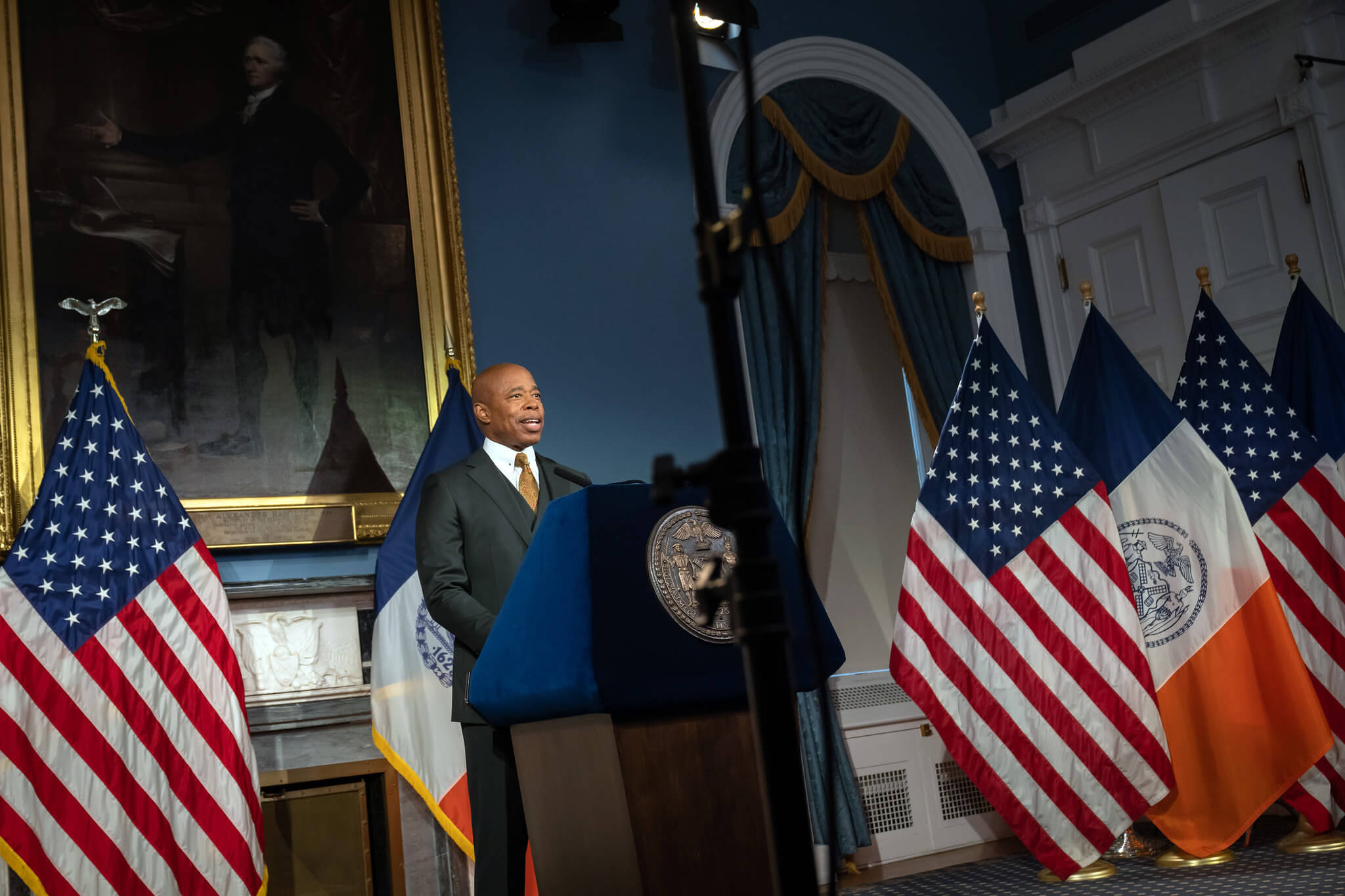
But Mayor Adams has repeatedly pushed back on criticisms of the plan. At an unrelated Monday press conference, he said announcing the directive led to health care professionals from across the country reaching out to his administration, offering ways to improve the rollout of the new policy.
“The starting point was for us to say, ‘We’re not accepting this anymore,’” Adams said. “And now we are getting professionals all over the country who are reaching out to us and say, ‘we want to help.’ And we believe there are some real solutions to deal with the bad issues. There’s some real solutions that deal with the hospitals, and we’re going to start implementing [them]. We know this is a Herculean task.”
This story was updated at 7:25 p.m. on Wednesday Dec. 7, 2022.



